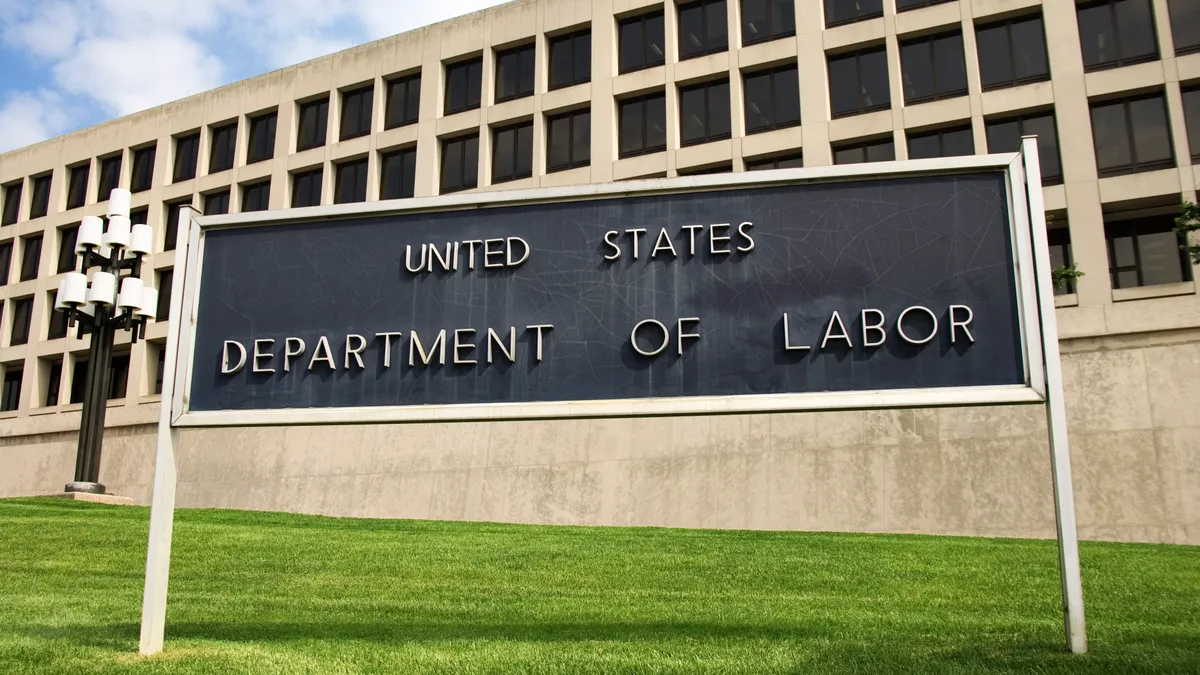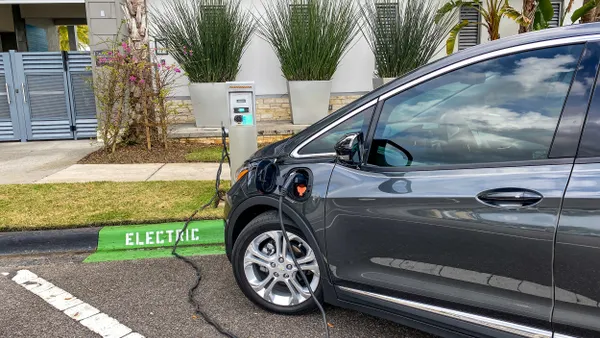Dive Brief:
- The U.S. Department of Labor (DOL) will Thursday propose a rule revising its interpretation of the Fair Labor Standards Act’s classification provision to determine whether a worker is an employee or independent contractor. DOL said it often sees employers misclassify employees as contractors and that the rule is aimed at preserving those workers' rights to minimum wage and overtime.
- The ruling could have major implications for ride-sharing companies such as Uber and Lyft, which rely on independent contractors for drivers. If those workers get reclassified as employees, Uber, Lyft and others would have to provide them with additional benefits and labor protections, raising their costs.
- “After further consideration, the Department believes that the 2021 IC Rule does not fully comport with the FLSA’s text and purpose as interpreted by courts and departs from decades of case law applying the economic reality test,” DOL said, adding that it is proposing to rescind the 2021 test in favor of one “more consistent with existing judicial precedent and the Department’s longstanding guidance prior to the 2021 IC Rule.” DOL will accept comments from stakeholders for 45 days, once the proposal is published in the Federal Register.
Dive Insight:
The FLSA’s independent contractor regulations, as with so many of the federal laws under DOL’s enforcement purview, have been subject to a veritable table tennis match between presidential administrations.
The proposal would return DOL’s independent contractor classification standard to a multi-factor “totality-of-the-circumstances analysis” framework, a shift from the Trump administration’s 2021 rule that established a test in which these factors were to be separated into a set of “core factors” and “non-core factors.”
In its final days, the Trump administration issued Jan. 5, 2021, its final rule establishing what it called an “economic realities test” for the purpose of determining independent contractor status. The rule placed particular emphasis on two core factors: the nature and degree of workers’ control over their work, and the opportunity for profit or loss based on initiative, investment or both.
Less than a month after the rule’s unveiling, the incoming Biden administration proposed the first of two delays to the rule’s effective date before ultimately deciding to withdraw it that May. At the time, DOL said the Trump-era rule would have presented “a confusing and disruptive effect” for workers and businesses and that its elevation of two core factors contradicted the positions of both the U.S. Supreme Court and lower federal courts.
But less than a year later, a federal district court put the Trump-era rule into effect anyway, holding that the Biden administration acted improperly under federal law when it rescinded the rule. That led DOL to announce in June plans for a new proposed rule, for which it held a pair of online forums with employers and employees.
In a press call Tuesday, DOL Wage and Hour Division Administrator Jessica Looman told reporters that the proposed rule calls for the department to adopt a “non-exhaustive, six-factor test” to help determine whether a worker is in business for themselves. Looman said the proposal also would provide additional analysis of the control factor of a potential independent contractor’s work arrangement, including aspects such as scheduling, supervision, price-setting and the ability of an employee to work for other entities.
“We know many businesses rely on properly classified independent contractors and that these independent contractors, whether they’re freelancers or self-employed, play an important part in our economy,” Looman said. “The department has long acknowledged that these types of workers are not [FLSA]-covered employees. And as the law recognizes, independent contractors are, as a matter of economic reality, in business for themselves.”
Per the proposed rule, the six nonexhaustive factors DOL would consider in the assessment of the economic realities of a working relationship include:
- Opportunity for profit or loss depending on managerial skill.
- Investments by the worker and the employer.
- Degree of permanence of the work relationship.
- Nature and degree of control.
- Extent to which the work performed is an integral part of the employer’s business.
- Skill and initiative.
Reporters on the Tuesday call questioned how the proposal compared to California’s “ABC Test” for independent contractors, as laid out in the state’s Assembly Bill No. 5, or AB-5, law. Looman said that while the Biden administration has called on Congress to adopt similar legislation at the national level, DOL’s proposed standard would adhere to U.S. Supreme Court precedent.
“Absent a change in the law, the department will continue to adhere to the economic reality test which is supported by decades of judicial decisions,” she added.
Following the DOL’s announcement, share prices for gig economy companies including Uber and Lyft sunk sharply on public exchanges, media outlet MarketWatch reported.
Uber and Lyft have dropped sharply after the U.S. Department of Labor announced proposed rule change that would make it harder for companies to classify workers as independent contractors.#UBER | #LYFT pic.twitter.com/VPCaLLUqGk
— IG (@IGcom) October 11, 2022
Employers have until Nov. 28 to submit public comments on the proposal, DOL confirmed in a press release.













